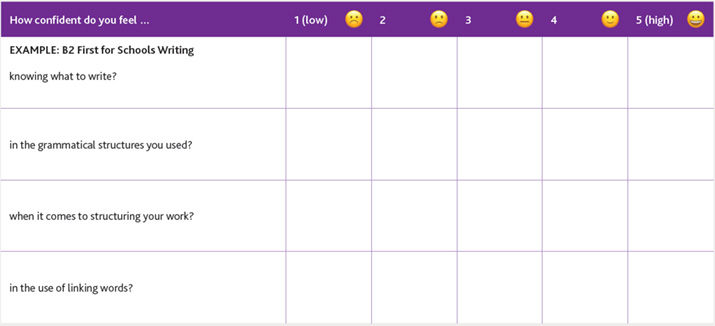Exam time is approaching and your students are almost ready to take their exam. After preparing and practising, it’s time to ensure they feel ready and confident for exam day. But as all experienced teachers know, they also need to understand the exam format.
Students, for example, need to know what’s expected of them at each stage of the exam. They should have a clear idea of how long they can spend on each question, and they should have a good understanding of how the exams are structured.
In this post we’re sharing five top tips and resources that you can use with your learners in the lead-up to the exam.
1. Understand how to best prepare for the exam
Learners may have lots of questions ahead of the exam. Our Information for Candidates booklets are full of study advice, frequently asked questions and exam day tips that your students will find both useful and reassuring. Each booklet helps students understand what to do in each part of the exam and how to best prepare for each paper.
Here are some of our exam day tips for older students:
Students may bring a clear plastic bottle of water with them into the exam. They should also bring black or dark blue pens, pencils (and coloured pencils for younger learners) and an eraser. We also advise them to get a good night’s sleep the night before, so they are rested and full of energy.
A free booklet is available to download for each level:
2. Build in more time to check in on your students
Remember to check in on your students regularly. In addition to checking grades and ensuring students are doing well in their classwork and practice tests, it’s important to understand how they are feeling.
After they’ve done a task in class or for homework, you can ask learners to rate how confident they feel using a confidence scale. Here is an example of a scale for a writing task at B2 level:

Ask students to evaluate themselves and hand it back to you afterwards. It will help you understand their progress for any task you choose. Simply replace the text in the left column with criteria that match the activity they did in class or at home.
You’ll be able to find out how the group is doing as a whole and see which individuals feel like they need more support in certain areas. This will help you to understand how your students are feeling and inform your planning.
Download a confidence scale template
3. Build confidence with practice tests
Mock tests simulate exam conditions and give the students a chance to see how they might perform. However they do, this will help your students really understand the exam and what is expected of them.
Our new mock test toolkit will help you run these practice sessions. It includes tips and advice on running and administering a mock test, strategies for giving effective feedback to learners, activities to try in your lessons and more.
Get our mock test toolkit
You can also purchase more authentic practice tests and use our free guide to converting practice test scores to the Cambridge English Scale scores.
4. Help learners develop their writing skills
Students need to practise their writing skills as often as possible ahead of the exam. Our practical guides for assessing writing will help you understand the assessment criteria, understand your students’ strengths and weaknesses and give you the information you need to develop your learners’ writing skills.
Each guide includes practical tips and real examples that will help prepare your students for the exam. You can download a guide for each level here:
To make the most of the guide, try out the ideas inside and evaluate how they help you teach. As part of this, we recommend discussing which activities were most helpful for your students.
You may wish to adapt how you approach each activity, depending on the level and the confidence of your students.
You can also test yourself as an examiner. Do this by marking the sample questions and comparing your scores with those of the official examiner (you can find these marks in the guidebooks). Once you feel confident marking answers, try using the assessment criteria to evaluate your own students’ work.
5. Reassure your students with our videos
Even after lots of preparation, some students still feel nervous on exam day. Share our candidate exam day experience videos with your students to show them what it’s like to take a Cambridge English Qualification and reassure them that there’s nothing to worry about.
Watch them below:
Pre A1 Starters, A1 Movers and A2 Flyers: What it’s like to take a Cambridge English Qualification
A2 Key – C2 Proficiency: What it’s like to take a Cambridge English Qualification
Don’t forget, we also have Speaking test videos for each exam. Share these with your learners so they understand what happens during a Speaking test – it will make them feel more confident on exam day.
Speaking test videos
We wish your students good luck in their exams!
Explore our final preparation materials and find a whole range of practical resources to help your students get ready for their exams.